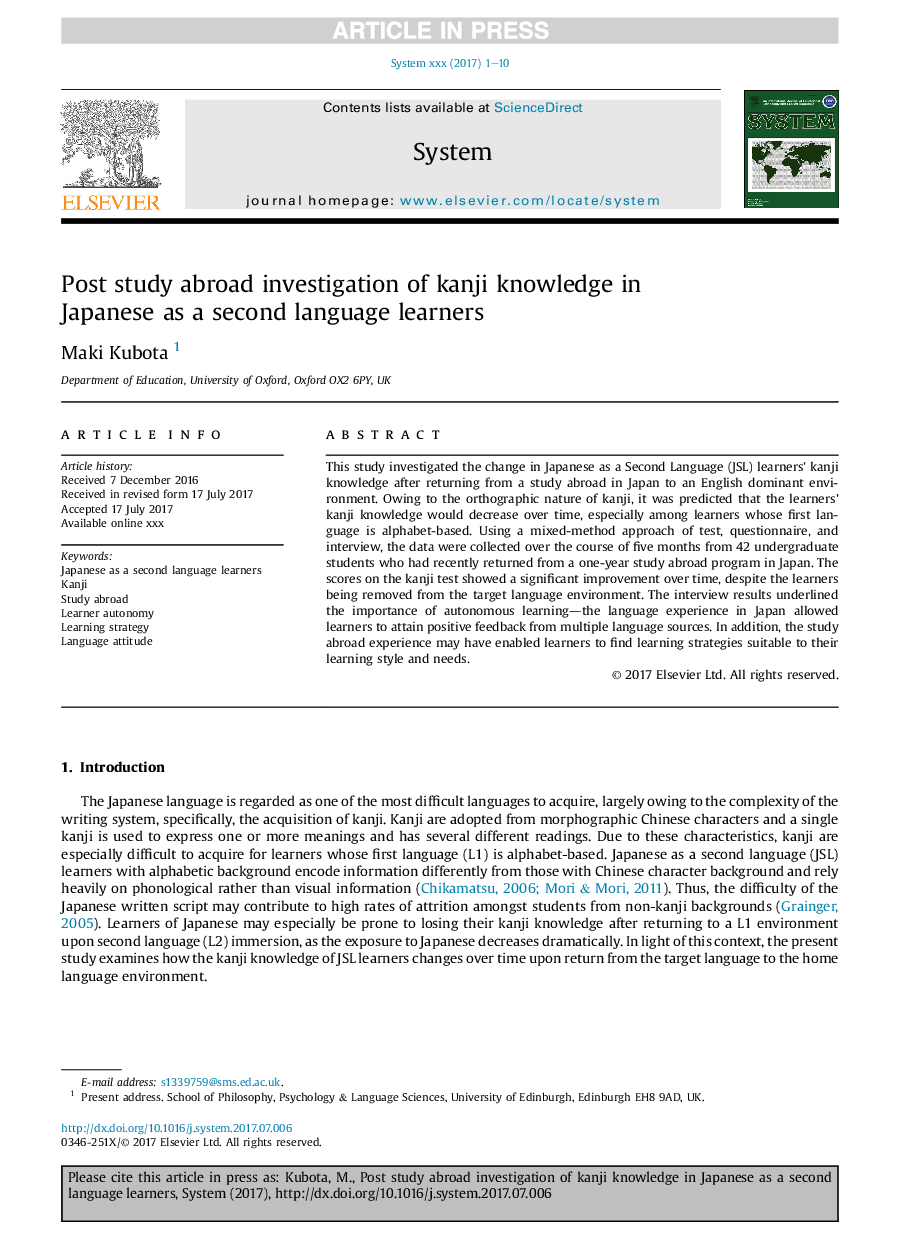| Article ID | Journal | Published Year | Pages | File Type |
|---|---|---|---|---|
| 4941346 | System | 2017 | 10 Pages |
Abstract
This study investigated the change in Japanese as a Second Language (JSL) learners' kanji knowledge after returning from a study abroad in Japan to an English dominant environment. Owing to the orthographic nature of kanji, it was predicted that the learners' kanji knowledge would decrease over time, especially among learners whose first language is alphabet-based. Using a mixed-method approach of test, questionnaire, and interview, the data were collected over the course of five months from 42 undergraduate students who had recently returned from a one-year study abroad program in Japan. The scores on the kanji test showed a significant improvement over time, despite the learners being removed from the target language environment. The interview results underlined the importance of autonomous learning-the language experience in Japan allowed learners to attain positive feedback from multiple language sources. In addition, the study abroad experience may have enabled learners to find learning strategies suitable to their learning style and needs.
Related Topics
Social Sciences and Humanities
Arts and Humanities
Language and Linguistics
Authors
Maki Kubota,
